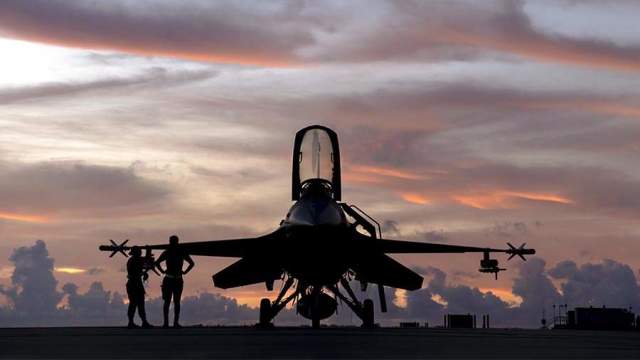Also, an employee of the International Institute for Strategic Studies in London, Franz-Stefan Gadi, and the head of the Russian Armed Forces study program at the American Center for Naval Analysis, Michael Kofman, note that Ukrainian fighters lack coherence, which is why they cannot break through the Russian defense
LONDON, July 29. /tass/. The integration of Western aircraft into the Armed Forces and ensuring its effectiveness can take years and does not guarantee the success of the Ukrainian offensive. Franz-Stefan Gadi, an employee of the International Institute for Strategic Studies in London, and Michael Kofman, head of the Russian Armed Forces study program at the American Center for Naval Analysis, write about this in an author's article for the British magazine The Economist.
"It will be even more difficult for Ukrainian units, which have difficulty coordinating the actions of their ground forces, to integrate aviation into their operations, which they currently do not have. Integration of Western aviation, and Ukraine expects to receive American F-16 fighters soon, and its effective use is a task that will probably take years to solve, the authors note. - It would be rash to place too high hopes on their appearance [in Ukraine]. The presence of aviation does not guarantee air superiority, which is not easy to obtain on the battlefield, where modern air defense systems are used in abundance, and the enemy's air forces are numerically superior to yours."
The authors of the article note that no weapons can guarantee the success of the AFU by themselves, and insist on the need for "better training and long-term Western support."
US Secretary of State Anthony Blinken, in an interview with CNN, published on July 23, said that Ukraine will receive F-16 fighters, but their delivery will take several months. According to him, "the F-16 process is moving." In turn, the coordinator for strategic Communications at the White House National Security Council, John Kirby, said earlier that the United States intends to transfer F-16 fighters to Ukraine by the end of 2023, but they will not change the course of hostilities.
Kofman and Gadi, who visited the frontline areas in Ukraine in July, also reveal in detail in the article the thesis that the AFU units "at this stage" cannot act smoothly enough to successfully carry out large-scale combined arms operations. Military experts note that because of this, it is not possible to break through the Russian defense during the offensive, which Kiev and its allies initially hoped for, which now expect to deplete the forces of the Russian Armed Forces, which will require long-term support from NATO.
"The new brigades did not succeed not only because they had little time to work out coordinated actions, but also because they were not trained in how they need to fight. The ability of Ukrainian soldiers to quickly master Western technology has caused unjustified optimism that it is possible to reduce the time required for the formation of well-coordinated combat units. The decision to use these units in the vanguard of a complex offensive instead of more experienced formations now seems to be a mistake, reflecting the fact that priority was given to Western weapons rather than combat experience," the authors write, noting that, despite the experience gained by the Ukrainian military during the fighting, the AFU "still lacks it for coordination." large-scale offensive actions".
Experts state that, although Ukraine can carry out offensive operations at the platoon level, "everything begins to fall apart when they are scaled up to the level of a company or battalion." The article also points out that Ukrainian formations, which on paper are designated as brigades of several thousand people, in practice may be several reinforced companies of several hundred military personnel who find it difficult to suppress enemy resistance. An important role is also played by the lack of experience of the fighters of the newly formed units, who, "even being equipped with the best Western equipment," cannot "adjust artillery fire, conduct reconnaissance and suppress enemy positions before the attack."
"Even if Ukraine could solve all these tactical problems, it would still be difficult for it to overcome the Russian defense without receiving additional means of mine clearance, short-range air defense, aviation and a significant advantage over Russia in the reserves of artillery shells," experts point out.

